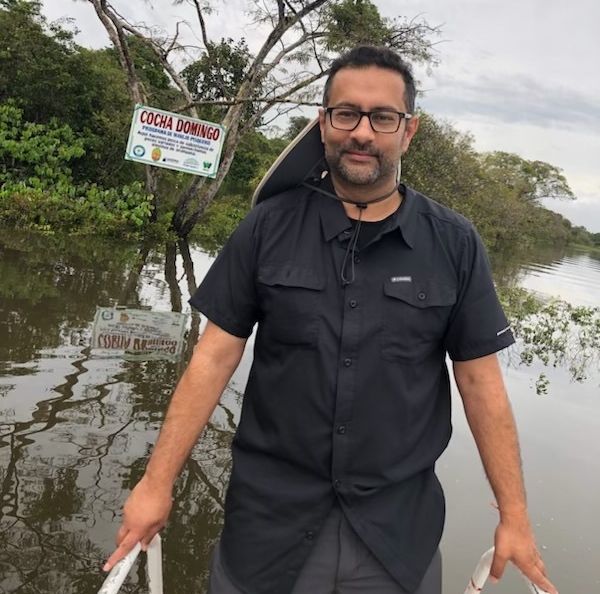
Sushil Raj visits the Tamshiyacu Tahuayu Reserve in the Peruvian Amazon. At the lake Cocha Domingo, fish stocks are sustainably managed by the community with WCS support. Photo courtesy Sushil Raj.
“By respecting and protecting the rights of Indigenous Peoples and local communities and amplifying their voice in conservation policies, practices, and governance structures, WCS Global is travelling the best and necessary pathway to equitable, just, and durable conservation.”
This values statement at WCS (Wildlife Conservation Society) is not just a moral imperative but also a practical one to effectively deliver on environmental conservation objectives. My role as the Executive Director of Rights and Communities is to lead the global program that works to put this credo into effect through our staff around the world, and with our Indigenous and local community partners.
I was born in Thimpu, the spectacular capital of an extremely beautiful and culturally rich place in our world—majestic Bhutan. It is a carbon sink whose forests have maintained their high ecological integrity due to farsighted government policies combined with deeply-held beliefs and traditions, underscoring that biological and cultural diversity are deeply interlinked and co-evolved.
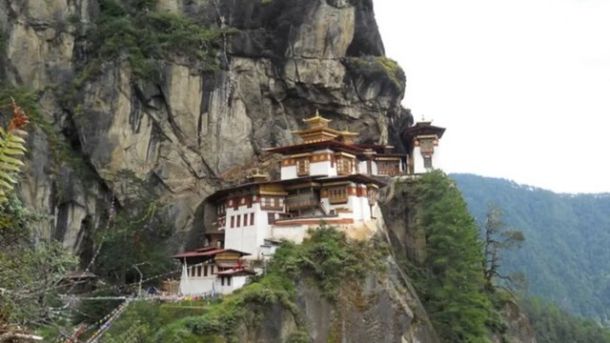
Takstang Monastery in Paro, Bhutan. Photo credit: ©Sushil Raj.
My love for nature emanates from this fundamental connection of where I took my first breath, as well as my early childhood visits to my father’s village in the foothills of the Himalayas on the border of Punjab and Himachal Pradesh in India.
These visits were eye openers. I saw how the family lived sustainably and in harmony with nature despite extreme poverty and conditions of exclusion and oppression resulting from our minority status. I learned about the collective culture of the extended family, visited the village shrine where our ancestors rested, spoke to the village saints, and received many blessings.
The values of the family about respecting the natural world and wildlife were deeply instilled in me during those formative years. As a young adult, I explored the mountains and communities of Himachal Pradesh, Ladakh, and Uttarakhand.
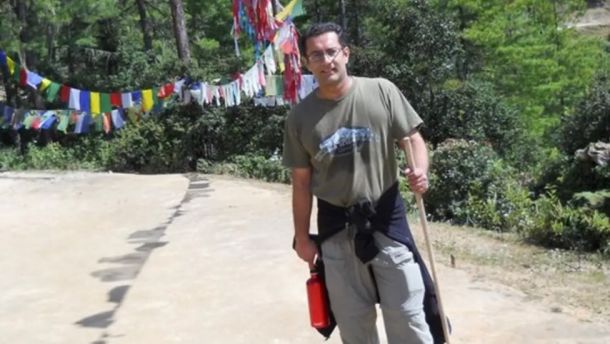
Sushil Raj, hiking towards Takstang Monastery in Paro, Bhutan. Photo courtesy Sushil Raj.
I eventually moved to the New York City borough of the Bronx in 1998 for graduate school at Fordham University, where I happily discovered the neighboring Bronx Zoo. The zoo provided me with both reprieve and inspiration as I navigated the immigrant world, culture shock, and reminisced about the world that I came from in India and Bhutan.
After graduating from university, I started a career in social justice and human rights. In 2013, I began to work on human rights and conflict prevention in the Democratic Republic of Congo and was fortunate to visit Kahuzi Biega National Park (KBNP). At the time I had no knowledge of the future that visit foretold. In 2021, I joined the Wildlife Conservation Society and with an amazing team have been building a new paradigm of conservation in KBNP while carefully studying other models. It could be nothing else but a calling.
A year and a half later, and after visits to multiple WCS sites, I strongly believe that I am at the right place, right time, and with the right institution to follow my mission. WCS and I share values at a fundamental level. This enables me to work in close and mutually respectful partnerships with Indigenous Peoples and Local Communities to amplify their voices.
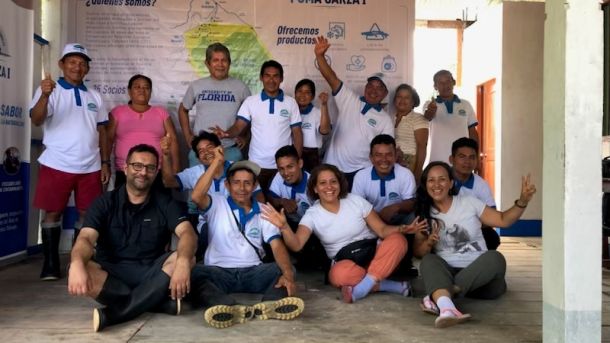
Sushil Raj, with the fishermen of Tamshiyacu Tahuayu Reserve, Loreto Province in the Peruvian Amazon, at their fish processing center supported by WCS. WCS helped the community secure title to their reserve. Photo courtesy Sushil Raj.
WCS also influences national policies, helps to change public perceptions, secure Indigenous and local community land titles, exercise their rights, and channel resources for livelihoods to people who are often ignored by global discussions and agendas. Such discussions have too often been removed from the context, realities, and politics on the ground.
Apart from supporting Indigenous or local community-led conservation, we’ve prioritized the co-design of programs to ensure we respect the self-determination of communities that are acutely aware of what is needed in their lives.
I lead a team of social science practitioners and utilize my academic training and multiple skills sets in human rights law, political science, political economy, and conflict analysis. Together as a team we examine social determinants of disparities, employ data-based program design, and develop innovative solutions. I also utilize my specific experience as a practicing mediator to bridge differences and find collaborative solutions in difficult settings; a key determinant of where WCS chooses to work.
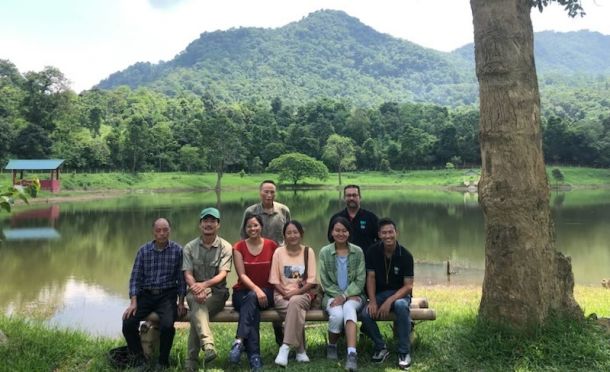
Sushil Raj, with colleagues at the Sendenyu Village Community Reserve in Nagaland State of India. Photo courtesy Sushil Raj.
The global program on Rights and Communities provides an opportunity to apply both hard and soft skills acquired from my background in philanthropy, social justice work, community, policy, and diplomatic efforts at the United Nations.
While it is a privilege to serve in such a global role as an Asian American, I am also cognizant of the fact that Asian American and Pacific Islander representation is low within the conservation sector, especially in the senior leadership structure where I sit. My appointment on the institution-wide Diversity, Equity, and Inclusion Advisory Council, as well as within the WCS Global Programs’ reflection group covering 60 countries on these issues, provides me with a platform to effect significant change.
Although we face existential threats from animal to human transmission of disease, and the interconnected crises of climate change and biodiversity loss, I do see a bright future for conservation and our planet. However, this requires that we consistently work toward building trust, bringing people together in good faith discussions with open engagement, and innovate collaboratively to address current and future threats.
